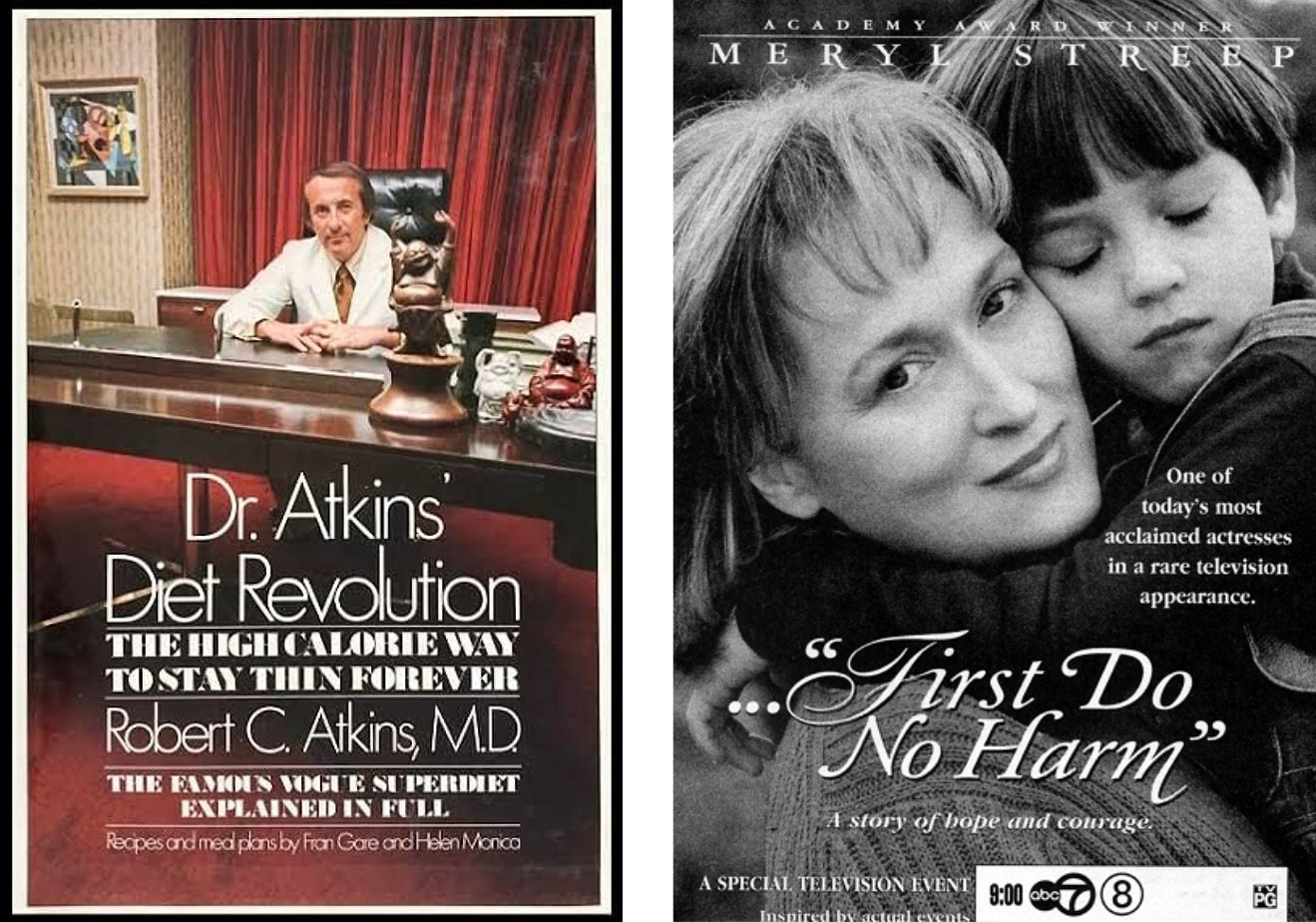Gastropod looks at food through the lens of science and history.
Co-hosts Cynthia Graber and Nicola Twilley serve up a brand new episode every two weeks.
Co-hosts Cynthia Graber and Nicola Twilley serve up a brand new episode every two weeks.
Adrienne Bitar is a lecturer at Cornell University, specializing in the history and culture of American food and health. She is the author of Diet and the Disease of Civilization, the first full-length study of diet books.
Johns Hopkins neurologist Tanya McDonald specializes in the treatment of epilepsy, including the use of the ketogenic diet for her patients.
 Bernarr McFadden is credited as one of the early popularizers of the low-carb, high-fat diets that preceded Atkins and keto; left, a film poster from 1915 about his effort to "build up the health of a nation;" right, McFadden in 1923, at age 55.
Bernarr McFadden is credited as one of the early popularizers of the low-carb, high-fat diets that preceded Atkins and keto; left, a film poster from 1915 about his effort to "build up the health of a nation;" right, McFadden in 1923, at age 55.
Michael Easter writes about health and wellness and is a lecturer at the University of Nevada. He covered the ketogenic diet for Men's Health in his article "Inside the Rise of Keto: How an Extreme Diet Went Mainstream."
Shivam Joshi is a nephrologist and an assistant professor at New York University's Grossman School of Medicine.
 Two very different media that helped popularize keto: Robert Atkins and his low-carb, high-fat diets, which encouraged users to go into ketosis; and the Meryl Streep TV movie "First Do No Harm," which told the true story of how the keto diet helped treat epilepsy in a boy named Charlie Abrahams, and helped re-popularize the diet for seizure control.
Two very different media that helped popularize keto: Robert Atkins and his low-carb, high-fat diets, which encouraged users to go into ketosis; and the Meryl Streep TV movie "First Do No Harm," which told the true story of how the keto diet helped treat epilepsy in a boy named Charlie Abrahams, and helped re-popularize the diet for seizure control.This episode of Gastropod was supported in part by the Burroughs Wellcome Fund for our coverage of biomedical research.
This episode of Gastropod was supported by a generous grant from the Alfred P. Sloan Foundation for the Public Understanding of Science, Technology, and Economics. Check out the other books, movies, shows, podcasts, and more that they support here.
Click here for a transcript of the show. Please note that the transcript is provided as a courtesy and may contain errors.